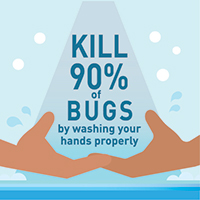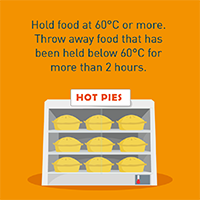Focus on minimising your biggest risks
Food businesses do different things, so what's most important when it comes to food safety isn't always the same.
We've identified the top 5 food safety measures you need to focus on for your type of business. These aren't all you need to do to comply with the law – but they are the things that your verifier will pay most attention to.
Most foodborne disease is caused by poor hygienic practices and improper handling of food.
— World Health Organization




















